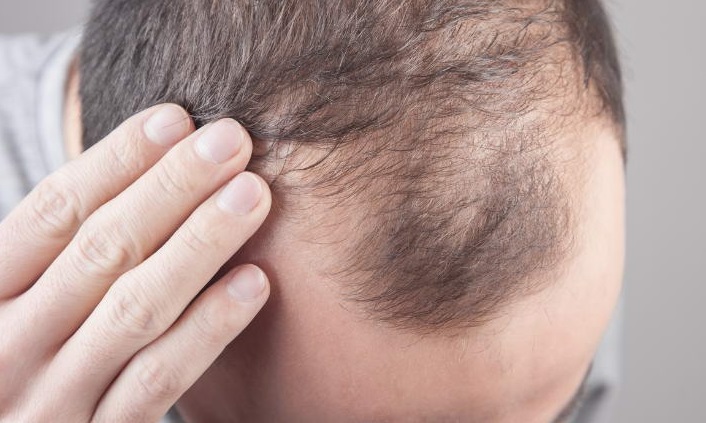Alopecia, sometimes known as hair loss, is a widespread condition that affects more than 80 million Americans.
So how can you tell if you’re losing more hair than usual?
Most adults lose roughly 100 hair strands every day on average. Most people won’t notice a difference because new strands are forming to replace the ones that have fallen out.
However, alopecia may be present if fewer or no hairs reappear and you start to see a receding hairline or thinning regions.
Dr. Wilma Bergfeld, a dermatologist, discusses how to stop hair loss, potential causes, and whether it can be stopped or reversed.
Consume Vitamins
To determine whether you are vitamin deficient, your doctor might run a number of tests on you. Your hair development may be impacted by a number of vitamins and minerals, including zinc, iron, and vitamins A, B, C, D, and E.
The supplement biotin forte with zinc, which supports the maintenance of healthy hair, skin, and muscular tissue, has proven to be effective when prescribed by Dr. Bergfeld.
According to Dr. Bergfeld, “there are new ones that include saw palmetto, calcium, and selenium.” “These are all good. Simply check for those that are manufactured by a respected manufacturer.
Utilize over-the-counter medications for hair loss
The over-the-counter drug minoxidil, which aids in preventing hair loss, may be familiar to you.
The U.S. Food and Drug Administration (FDA) has approved the drug in a 5% strength, and it can be administered to your scalp as a solution or foam.
Dr. Bergfeld states, “We’ve been thinking about using low-dose oral minoxidil as a treatment.” A few research have demonstrated how beneficial and secure it is.
Maintain appropriate scalp and hair care
Do not subject your hair to severe procedures like bleaching, hair colour, or heating tools. Your hair may also be affected by hairstyles like braids or tight ponytails. Washing your hair and scalp frequently will help keep your scalp healthy.
The hair development cycle will be impacted by any scalp inflammation, according to Dr. Bergfeld.
Consume more protein
Your daily protein intake may be insufficient, which can slow the growth of your hair.
You might need to increase your protein intake, particularly if you’re vegan or vegetarian.
“You need 40 to 60 grams a day,” claims Dr. Bergfeld. You don’t have to consume protein in the form of food; you can drink it.
Other options for meeting your daily protein needs include Greek yogurt, eggs, and beans and lentils.
Why are you losing hair?
Due to the following, you can start noticing greater hair loss than usual:
- Genetics
- Stress
- pregnancy or menopause, which both cause hormonal shifts
- certain hairstyles
- damaging hair treatments such as bleaching or perms
- drugs used in chemotherapy
- issues including thyroid illness or fungus infections
- You can start figuring out what might be causing your hair loss by consulting a dermatologist. Your doctor will enquire about your general health, prescription drugs, and family history
Dr. Bergfeld advises his patients to keep track of any events that are uncommon for them, such as a heavy menstruation. So we’ll know something about it when we go back to hunt for triggers.
To determine if you are experiencing hair loss, your doctor will also examine other parts of your body, such as your legs, arms, underarms, pubic area, and eyebrows, lashes, and underarms.
Hair loss frequently signals the presence of a more serious problem.
“Hair loss, particularly shedding, is just a sign that something has happened to the body,” claims Dr. Bergfeld. “Among your body’s three cell types with the fastest turnover rates is the hair follicle. Those systems are impacted by anything that changes your body or throws it out of equilibrium. Therefore, hair loss is a sign that something is amiss.
